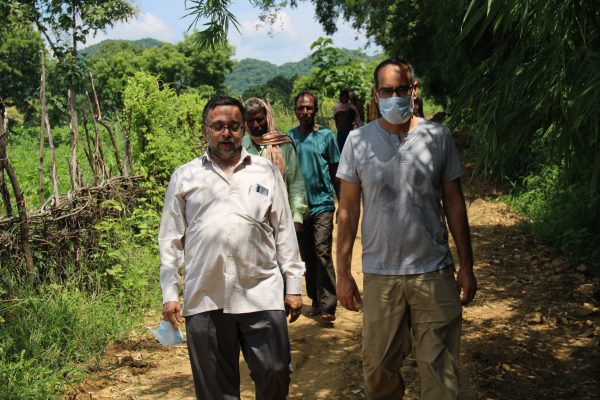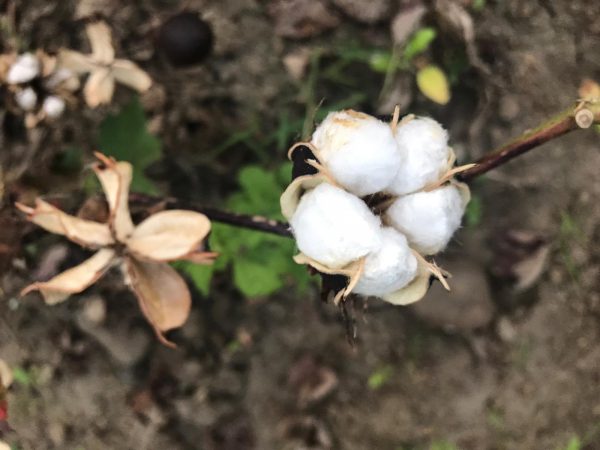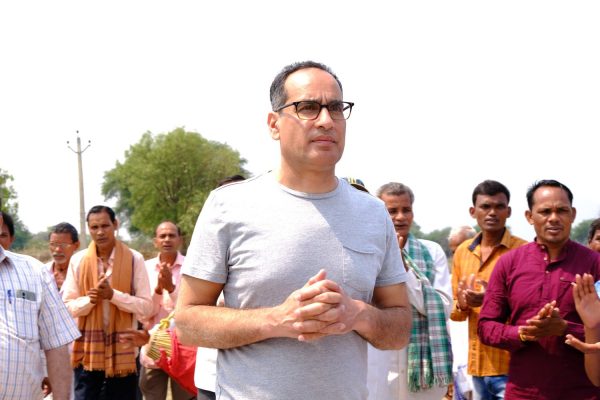Gallant International sources regenerative organic cotton directly from organic farmers in India
The integrity of organic cotton in India was called into question earlier this year when the New York Times published an investigative report claiming to uncover significant fraud in the country’s supply. The article said that as much as four-fifths of India’s organic cotton supply was actually conventional.
Despite the article, there are companies that are upholding organic standards and sourcing reliably certified organic cotton from India. Gallant International is a good example of a company that is ensuring organic integrity and transparency by building direct relationships with organic cotton farmers in India who are producing Regenerative Organic Certified™ and fair trade cotton.
Demand for organic cotton growing every year
Gallant International, based in Mission Viejo, California, was founded in 2009 by Vikrant “Vik” Giri, an immigrant from Nepal whose strong connection to South Asia led him to start the company. He is passionate about supporting farmers in the region who grow organic cotton.
“I started Gallant International because I wanted financial freedom for me and my family. I also wanted to help artisans back in Nepal, and in India where almost all my family members lived and worked,” Giri says.
Gallant International sells a variety of customized organic cotton products, everything from totes to makeup bags, pouches, zero-waste grocery bags, aprons, T-shirts, beanies, and more. Gallant sells the products wholesale to businesses, celebrities, non-profit organizations, and charities.
A sister company, Terra Thread, sells organic cotton canvas backpacks, bags, and accessories as climate-friendly alternatives to most bags and backpacks that are made from fossil fuel-based polyester and nylon.
Gallant International’s products are produced from certified organic cotton and processed in facilities that are Global Organic Textile Standard (GOTS) and fair trade certified.
Gallant is also a certified B Corp whose standards involve a business’s verified social and environmental performance, its impact on its workers and customers, and its public transparency.
Gallant is growing fast—with annual growth rates of 100% in 2019, 80% in 2020 at the height of the COVID-19 pandemic, and 30% last year.
“The demand for organic cotton is growing every year,” Giri says.
Buys organic cotton directly from farmers
Giri buys organic cotton from India directly from farmers. He works with more than 700 smallholder farmers who produce organic cotton on 3500 acres across two Indian states, Orissa and Telangana.
“Most farms are one to two acres only,” Giri says.
The farmers are members of Chetna, a 100% farmer-owned organization that is known for their pioneering organic cotton farming practices and efforts to make cotton production more eco-friendly, traceable, and worthwhile for India’s growers.
Genetically modified cotton dominates India’s cotton production; 95% of the country’s crop is GMO. Tragically, India’s conventional farming, including cotton production, is plagued by farmer suicides. Farmers often take out loans to buy expensive GMO seeds and pesticides, and if they suffer crop failures, they drink pesticides killing themselves. Nearly 300,000 farmers have taken their lives since 1995, about 28 farmers each day.
“India grows much of the world’s cotton but sadly with chemicals, pesticides and GMO seeds. We would like to change that by writing a new narrative for the cotton in the country by not only being organic and fair trade but also with regenerative practices,” says Nanda Kumar, CEO of Chetna.
Organic cotton offers India’s cotton farmers a healthier alternative to the GMO/pesticide treadmill.

Vik Giri (right) and Nanda Kumar, CEO of Chetna visit organic cotton farmers in India
“Farmers have been able to avoid diseases brought on by chemical fertilizers and pesticides and are able to lead healthier lives having transitioned to organic food and cotton,” Giri says.
Pays farmers in advance
Gallant pays their farmers a premium to grow fair trade organic cotton. The farmers also intercrop other crops with organic cotton, allowing them to earn added revenue from these other organic crops. They also pay less for inputs; organic cotton farmers don’t need to buy the expensive GMO seeds, pesticides, and fertilizers used by conventional cotton farmers, whose costs are spiking now due to higher gas and oil prices.
At the beginning of the planting season, Gallant pays farmers in advance to buy organic and non-GMO seeds, and commits to buying their harvested cotton.
“This assures the farmers that they have a customer for their cotton in advance,” Giri says.
According to Giri, the market demand for cheaper products puts pressure on the manufacturing supply chain, which can lead to fraudulent activities.
“This drive for rock-bottom prices encourages people to cut corners and turn to unsustainable options instead,” he says. “We need to pay people fairly for their work and be prepared to pay the true cost of the raw materials we use.”
“Many, many good actors in the organic cotton space”
Asked about the New York Times article questioning the integrity of India’s organic cotton, Giri says: “We all must acknowledge that no system, industry, or profession is 100% perfect.”
But he also insists there are “many, many good actors in the organic cotton space.”
To ensure organic integrity, Chetna requires GMO testing of organic cotton seeds that are given to Giri’s farmers. Testing is also done on cotton bolls before harvest and on fiber after harvest and after ginning or processing.
But Giri says the key to organic integrity is establishing direct relationships with the farmers and investing in their efforts.
“I’ve been using organic cotton that comes directly from farmers, and it is possible to intimately know one’s supply chain,” he says.
Giri visits his farmers every year to learn more about their production and challenges.
Other industry experts also emphasize the importance of direct brand-farmer relationships.
In a recent article about organic cotton fraud in Ecotextile, Arun Ambatipudi, executive director of Chetna, said: “Yes, it’s time for some serious introspection for the sector as a whole and radical changes in behavior… Again, at the expense of sounding repetitive, the way forward for the sector is to build a direct connection and relationship between the brand and the farmer!”
Giri would like to see more organic cotton brand-farmer relationships.
“There are so many hard-working respectable farmers out there who are following organic practices. I would encourage others to also build such close links with their supply chains—spend time with growers and source as much directly as possible.”
Regenerative Organic Certified
Giri, working with Chetna, decided to seek Regenerative Organic Certified (ROC) certification, which sets certified organic as a baseline but also encompasses standards for soil health, animal welfare, and social fairness.
“This certification takes its required farming practices much further on the sustainability spectrum and looks at the entire farming system holistically,” Giri says.
This past winter, more than 3500 acres of farmland used to grow Gallant’s organic cotton was Regenerative Organic Certified, making it one of the largest ROC cotton projects in the world.

Organic cotton
With ROC certification, Gallant and its partners hope to lead a transformation in how organic cotton is farmed across India, and bring more scrutiny to a supply chain that’s growing in demand annually yet lacking in true transparency.
“Now farmers will not only be participating in the most regenerative practices possible, they will be playing a major role in healing the planet—while making extra income from organic, fair trade premiums and rotational crops,” Giri says.
This year, Gallant and Terra Thread will be offering products made with ROC cotton.
Regenerative organic is the vision Giri has for organic cotton and the organic food movement as a whole.
“We’d really love to drive this regenerative movement to support organic growers as they invest in their soils, their communities, and in building a more resilient and equitable supply chain,” he says.





